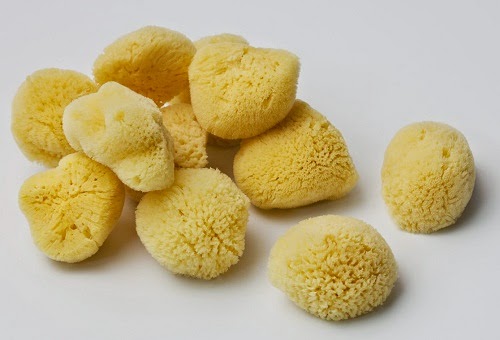Bath time is a fun and relaxing time for
most babies, bathing a baby is more than a basic cleanup. Bath time is
bonding time too — a chance for you to relax and have fun with your
baby. It’s also a time to introduce your little one to a whole new world
of sensory experiences — from your gentle touch to the soothing feel of
warm water and soft natural sea sponge on the baby’s body. Another practical perk to bathing your baby: It’s a good way to get baby ready to fall asleep.
Bath
time enhances the mom-baby bond— it’s time spent together, just the two
of you. Taking care of your baby lets him/her know you care about and
that’s especially true during those warm, wet, wonderful baths. Take
advantage of this special time to have eye contact, caress your baby,
kiss your baby’s belly, and even sing silly songs. Feeling your gentle
touch and hearing your voice will let your little one know how much he
or she is loved.
So whether your baby
is older and enjoying a bath in a tub of water or a newborn getting a
nice warm sponge bath, the American Academy of Pediatrics recommends
sponge baths until the umbilical cord stump falls off — which might take
up to three weeks. Using a natural sea sponge, to sponge bath baby
or to wash him/her in the tub has many benefits compared to synthetic
sponges. Babies and children benefit from the natural sea sponge for its
hygienic characteristics and of course the softest wash on the planet.
Sea sponges are the most natural and healthy way to cleanse and care for
your baby’s skin.
Natural Sea sponges
are highly absorbent so the help create a gorgeous lather and a texture
that only nature can produce. The soft, but textured surface affords
gentle care even to the most sensitive of skins, as your baby’s. After
washing, the feeling of cleanliness and freshness is something that
simply cannot be compared to with any synthetic sponge. In addition to
that natural sea sponges are toxin-free and hypo-allergenic. Effective
for skin conditions such eczema which can occur quite frequently in
babies.
While natural sea sponges
carry enzymes that hinder the growth of bacteria, mold and mildew,
Synthetic sponges are more prone to carrying dirt, and growing bacteria,
mould and mildew. The complex web of canals in the sea sponge structure
helps a self-cleaning process that absorbs and quickly washes any dirt
away, with careful rinsing between uses your sponge will be clean and
hygienic. Sea sponges are more durable and last longer than synthetic
sponges and don't retain odors. They are more resistant to abrasion.
Natural sea sponges: Organic and durable, sustainable and biodegradable.
So
when you sponge bath baby or use a sponge during bath time, using
natural sea sponges ensures that your baby is getting the most amazing
bathing experience nature can provide. As bathing can be a learning
experience, making it a positive one is of vital importance.

